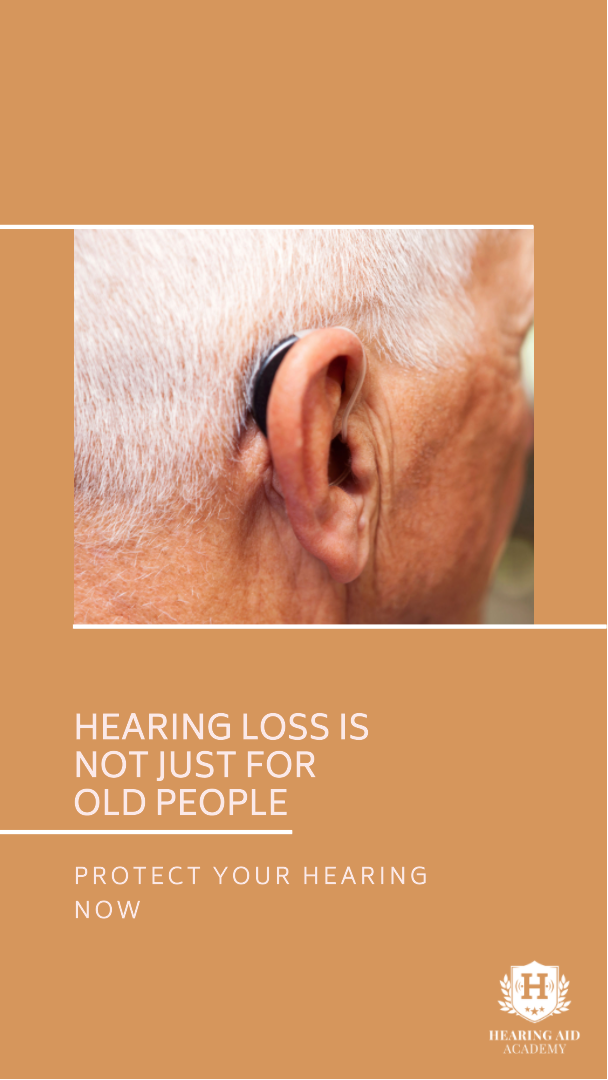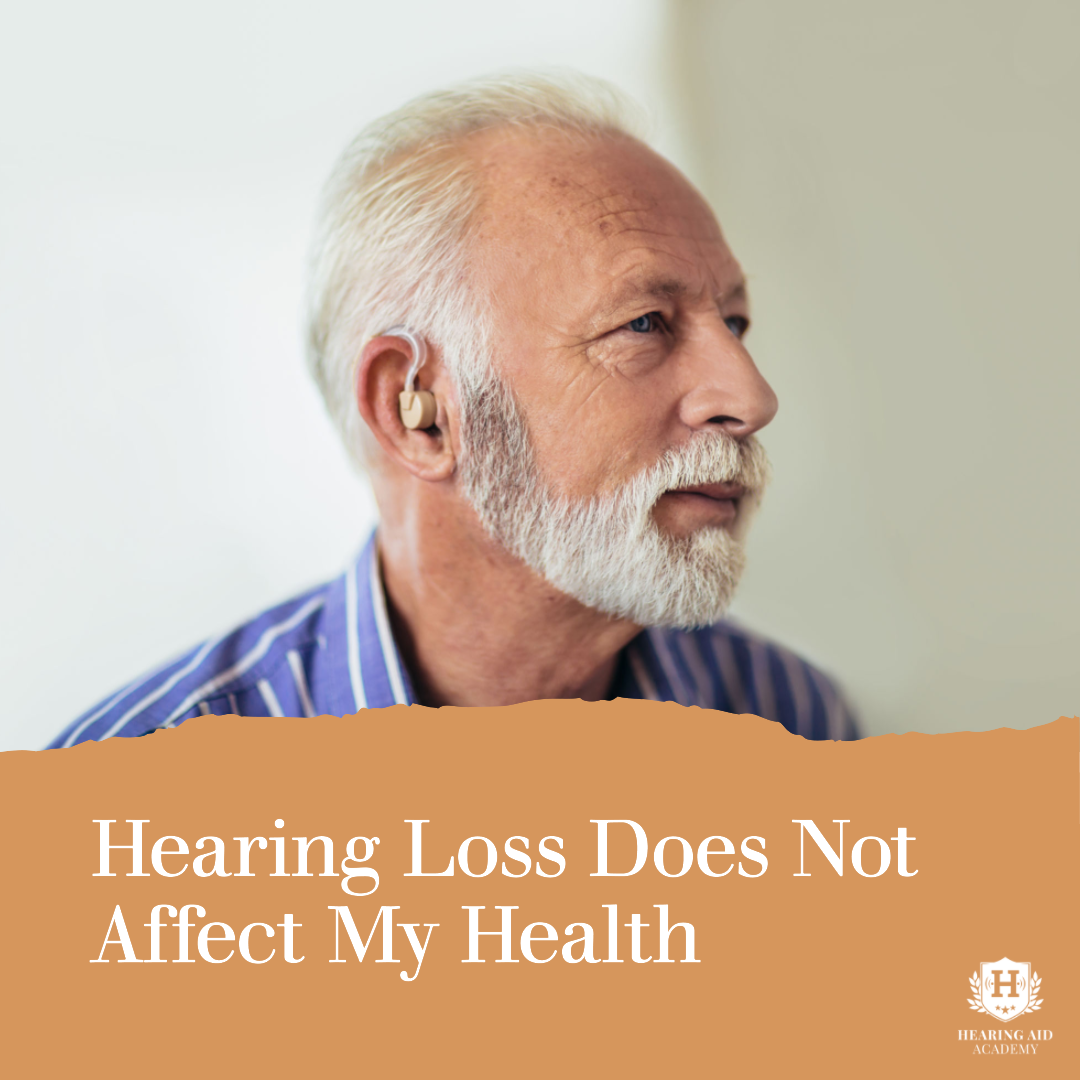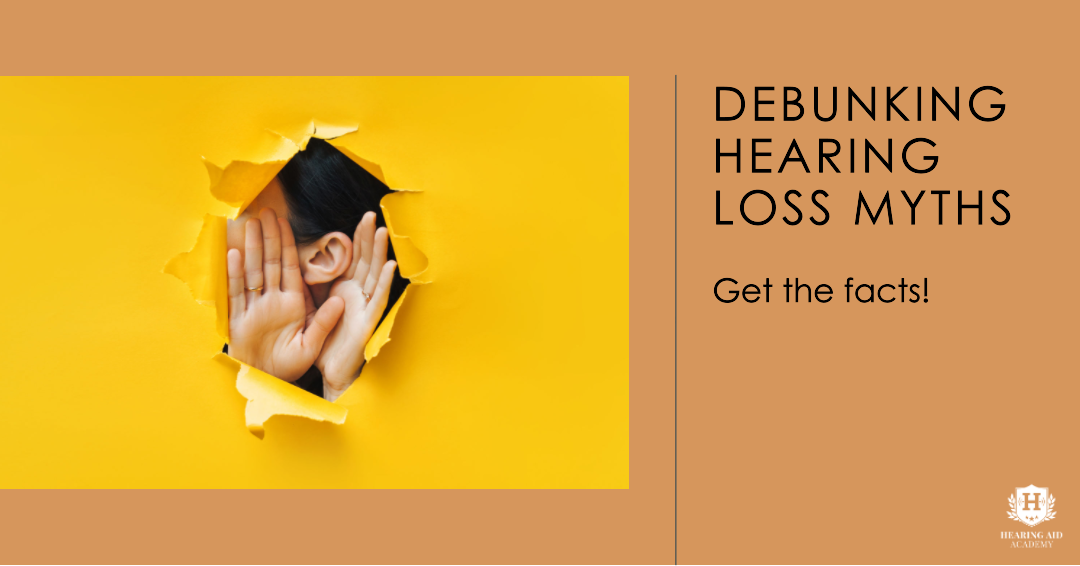Hearing loss is a common condition that affects a lot of people. According to NIH, One in eight people in the United States (13 percent, or 30 million) aged 12 years or older has hearing loss in both ears.
Yet there is a stigma regarding this condition. While this is an invisible disability, many people choose not to talk about hearing loss. There are a lot of misconceptions that people have about hearing loss. Today, we have gathered a few misconceptions and want to tell you the truth behind them.

Myth – Only Old People Experience Hearing Loss
While aging adults are often at higher risk of hearing loss, the truth is 40% of Americans under the age of 60 suffer from some degree of hearing loss in one or both ears. When it comes to hearing loss, it does not discriminate based on a person’s age.
Myth – I Have Hearing Loss in One Ear Only, So I Am Fine
The brain can easily adapt to changes in the body. However, when you have impaired hearing in one ear, the body needs to compensate for it. Not using hearing aids for a long time is not a good idea in the long run.
Myth – Hearing Aids Helps Restore Hearing Back To Normal
With the advent of technology, there are a lot of things that are possible nowadays. However, no hearing aids can help restore hearing back to normal. There is no man-made device that can replicate a human’s ability to hear. So it is best to get your ears checked regularly to nip the problem in the bud.
“Roughly 10 percent of the U.S. adult population, or about 25 million Americans, has experienced tinnitus lasting at least five minutes in the past year”

Myth – Hearing Loss Does Not Affect My Health
This is a myth that is believed by people all over the world. However, this couldn’t be further from the truth. People who suffer from the impaired hearing are more likely to become isolated, fall, and suffer from depression, and anxiety. Studies have also proved that people with hearing loss are at an increased risk of developing dementia.
Myth – If I Have a Hearing Problem, I Would Know
This is not always true. Hearing loss does not develop suddenly, rather it develops gradually over several years. During this time, people often compensate for their loss of hearing by asking others to repeat themselves. This becomes a habit over time and thus hearing loss goes unnoticed.
Myth – Hearing Aids are Expensive
The cost of hearing aids depends on many factors such as how sophisticated the technology is and the size or style of the hearing aid. However, even today hearing aids are available at affordable prices.
Myth – Hearing Loss Means Sounds Should Be Louder
This is not exactly true. While people with hearing loss can often hear people speak, they have difficulty understanding what the other person is saying. Alternatively, making the sound louder makes it difficult to understand what the other person is saying.
This is the reason why hearing aids are designed to amplify the frequency rather than make the sound louder.


